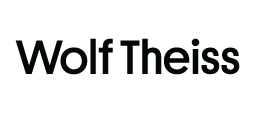The Act on Restrictive Measures (OG No. 133/2023, the “Act“) entered into force on 15 November 2023 (with the application of certain main provisions as of 15 May 2024). The Act establishes more effective due diligence and reporting procedures and mechanisms, which will enable the Republic of Croatia to implement new and more complex sanctions regimes from the European Union and United Nations.
The Palette of Restrictive Measures
Restrictive measures generally include:
- restrictions on the disposal of assets;
- prohibition of entry into the national territory of the Republic of Croatia or prohibition of transit through it;
- total or partial termination of economic relations;
- total or partial restriction on trade, imports, exports, transit, provision of services and postal traffic, electronic, and other communications;
- embargo on weapons and military equipment;
- termination of diplomatic relations; and
- other measures in line with international and European law.
Scope of Application
Entities under the supervision of the following institutions need to comply with the obligations set out under the Act:
- the Croatian National Bank;
- the Croatian Financial Services Supervisory Agency;
- the Financial Inspectorate, and
- the Tax Administration – which in fact means all legal entities active in Croatia.
New Set of Obligations as of 15 May 2024
As of 15 May 2024, the entities need to comply with the following main obligations:
- adopt written policies, controls, and procedures regarding the implementation of restrictive measures;
- appoint a person within the organisational structure to be responsible for compliance with restrictive measures;
- establish appropriate reporting channels;
- keep data regarding the application of restrictive measures.
Monetary Fines
In case of non-compliance with the new statutory provisions, monetary fines ranging from approx. EUR 4,500 to EUR 90,000 for legal entitles, and from approx. EUR 600 to EUR 4,500 for the responsible person within legal entities, may be triggered.
Zoom-Out
For the wider context, on 24 June 2024, the European Union adopted a 14th package of restrictive measures imposing restrictions on an additional 69 individuals and 47 entities in respect of Russia. Restrictive measures already in force exert pressure on targeted entities by limiting their access to services and resources, forcing affiliated companies to navigate these restrictions carefully in order to ensure compliance.
By Dora Gazi Kovacevic, Partner, and Alan Vuckovecki, Associate, Wolf Theiss


